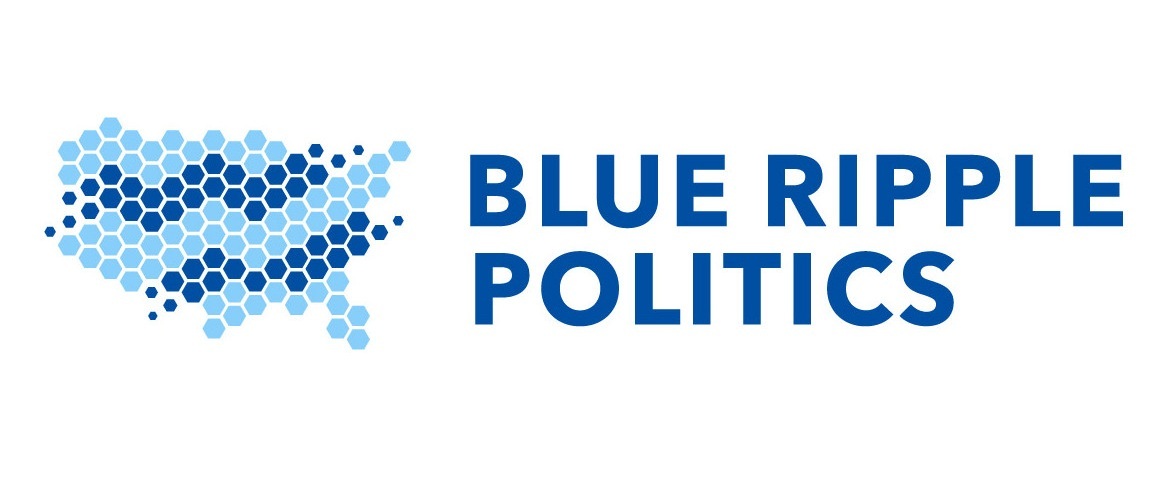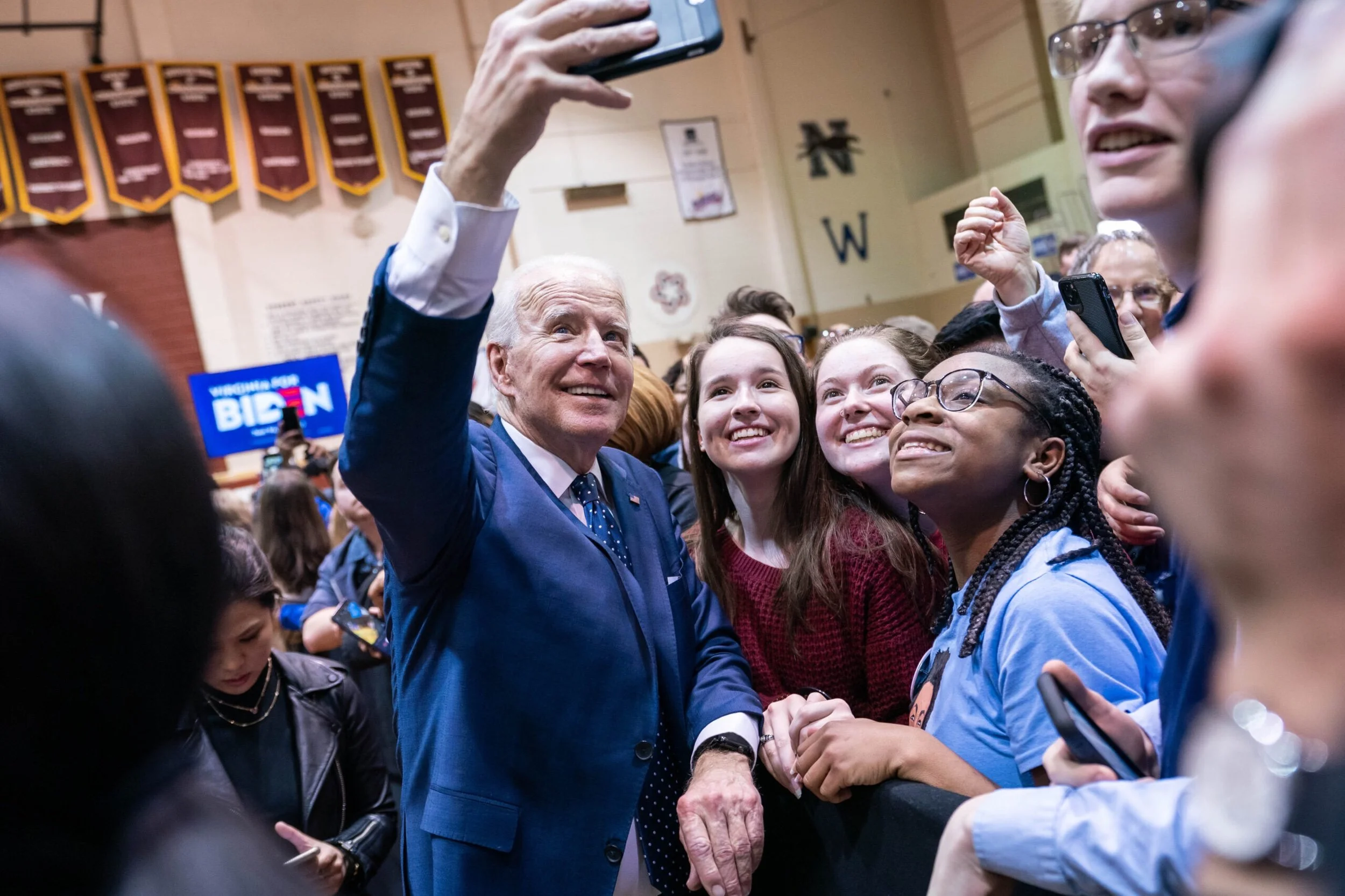Political campaigns are a fabulous way for young people to get introduced to politics, and for many it can be a springboard into future opportunities in and around government. (If you’re a student, check out our guide to campaign internships to learn more!)
However, many of these positions are unpaid, which limits who can take advantage of them.
That’s why we are excited to introduce you to Amalie Seth, a high school student in Manhattan whose newly-formed program Rep The Future helps place New York City youth in paid Democratic campaign internships. (Note: Blue Ripple Politics has signed on to advise Amalie and RTF.)
Please read on to learn how Rep The Future is trying to broaden high school students’ access to political campaign work, and support them via the handy ActBlue link below! (And if you’re a high school student in NYC, learn more about how to apply on Rep The Future’s web page!)
Amalie’s conversation with Blue Ripple’s Frank David has been lightly edited for length and clarity.
What problem is Rep The Future trying to address?
The overall mission of Rep the Future is to increase the accessibility of campaign fellowships and internships to New York City high school students by providing stipends to students who would be unable to have this opportunity otherwise.
I’ve worked on campaigns for U.S. Congress, City Council, and District Attorney, and they’ve been some of the most defining experiences of my high school career. Getting involved behind the scenes in campaigns gave me hands-on experience in an important aspect of our democracy and the chance to help elect officials who would represent me. I also learned about policy writing, improved my communication skills, and gained a lot of organizing skills.
But something I realized in my time of being involved with political campaigns is you can really only do it if you don’t need compensation. Most campaigns don't have enough funding to be able to pay interns, so only a very specific set of people can get involved with campaigns in the first place. I want to increase that, so that everyone has an equal opportunity to get involved with campaigns, become more civically engaged, and enter the world of politics.
What holds students back the most from working on campaigns: awareness, contacts, or finances?
It’s all of these. My own experience was that initially I didn’t know what being on a campaign was like, and didn’t think getting involved was possible. Then I met two students at my school who had worked on campaigns, and I thought it was so impressive and cool. I was fortunate that they connected me with Mondaire Jones’s campaign (NY-17), and from there I was able to become a fellow and got introduced to the realm of politics. But if I didn't have those two people in life, I may have never gone down the path I did. When one of the girls told me she was going to connect me with a campaign, I was really excited. I remember being in my kitchen, thinking to myself, “If this works out, I’m going to introduce at least one new person to a campaign and get them involved in politics in the same way that she did.”
But the finances are also very important. I’m so lucky to be financially advantaged and be able to work on campaigns without compensation. But there are many students for whom that is a limiting factor. So providing stipends to students who need it to be able to do meaningful work and get involved in politics would be amazing, because currently the whole idea of getting involved in campaigns is very niche, and only certain people consider it. It’s a very financially-advantaged group, because not everyone has access or resources. Campaigning is hard work – you might put in seven or eight hours a week part-time while going to school and doing everything else – and if you’re not being compensated for it, that doesn't really work for a lot of people.
What is Rep The Future aiming to do in the 2022 election cycle?
Our initial goal is to place four paid interns in a campaign for a 12-week period. To do that, we aim to raise $5,000, which is enough to pay each student $15 per hour for 7 hours/week during that time. Currently, we have raised $2,000 of that $5,000 and we are reliant on donors both large and small to help push us past the finish line. To allow for as many qualified interns to partake in the program as possible, Rep the Future will prioritize compensation to students who need it most. Our other interns will receive community service hours for their time.
We’ve already partnered with a Congressional candidate who has agreed to take four paid interns from Rep The Future early this year. Later, as we gain more interns and funding, we will hopefully work with many different campaigns. Finding campaigns to work with seems like it will actually be the easiest part. We provide interns with compensation, and most campaigns are very interested in having those resources.
In recruiting interns, we are looking for passion and dedication over experience, because what we want to do is increase accessibility and make campaigns available to students who haven’t had the opportunity and want to try it out. The main criterion for selection is to be a hard-working student who is passionate in general about politics and would be really interested in doing this.
In terms of logistics, we’ve partnered with Blue Future, a progressive youth organizing group, which has provided us access to their fundraising platform and given us space on their website and a presence on their Instagram. We’re also very grateful to the other members of our advisory board, including Blue Ripple Politics, Generation Citizen, Next Generation Politics, and Haley Bash, who are helping us with advice, publicity, and fundraising outreach.
What do you think might be the broader impact of Rep The Future’s efforts to help students work on political campaigns?
From my experience, I’ve seen on campaigns that teenagers have a lot of energy and hope in our democracy, because we’re young. We see the world through a different perspective: we really do think change is possible, and we want to help instill this change.
A lot of candidates have recently realized that our voices are missing and important. For example, Ed Markey got a lot of youth involved in his winning campaign for U.S. Senate, and a big factor was that the youth force was so powerful and passionate, and previously hadn’t been used to its fullest extent.
So, I think Rep The Future can help on both sides – not only will we give students the opportunity to get involved with a campaign and enter the civic realm, but we’ll also bring young people’s energy to help shape the campaign and give it a whole different force.
Photo via Joe Biden for President.

